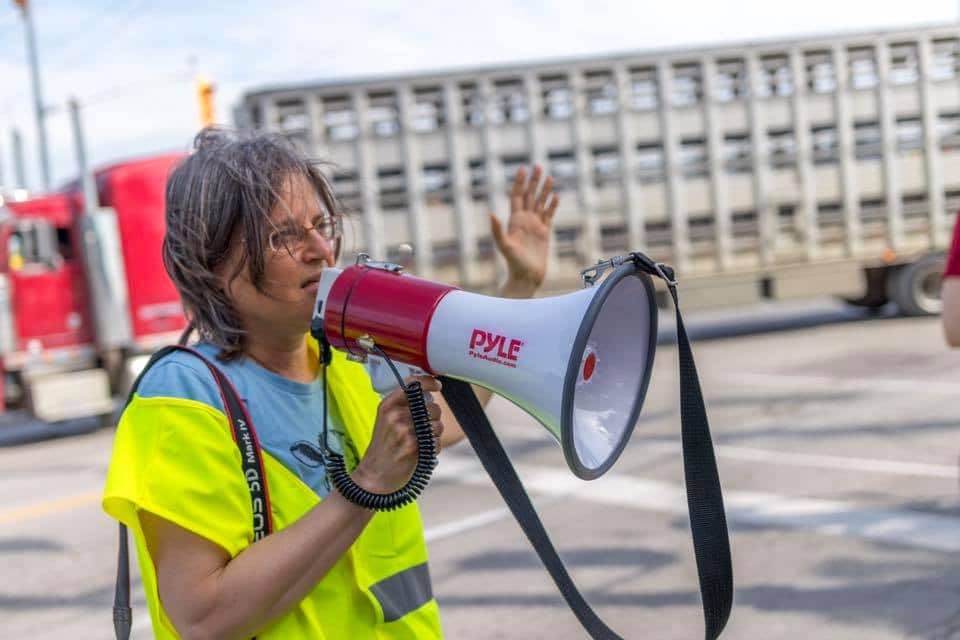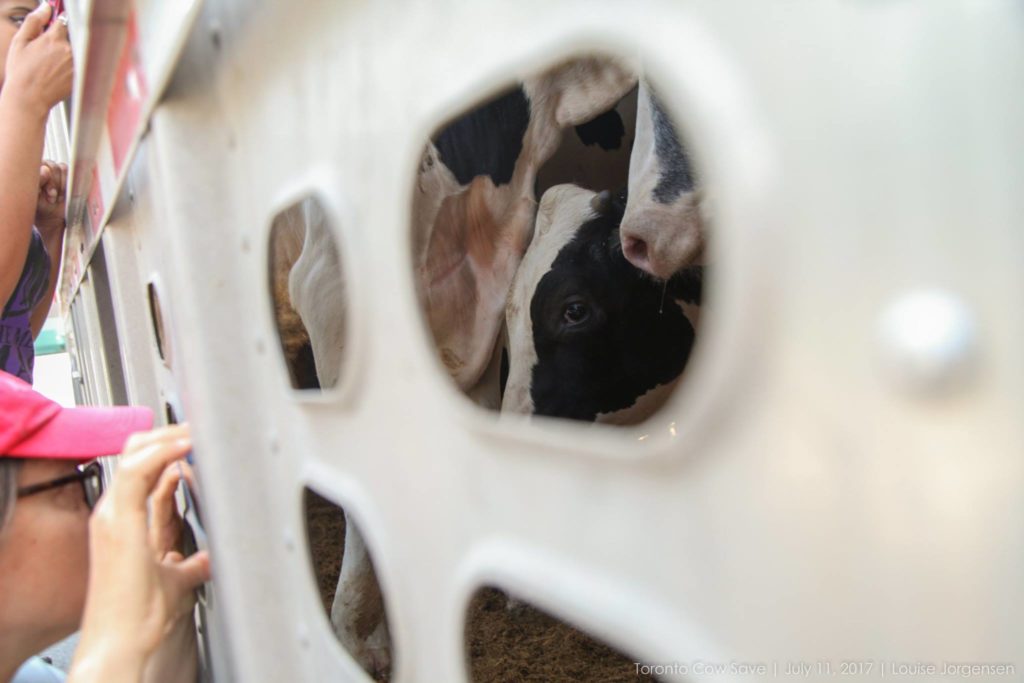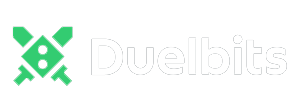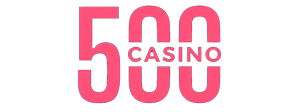Toronto Pig Save Interview Interview
If we all strove to be more observant and empathetic, the world would quickly become a much more caring place.
Empathy is a core principle of Toronto Pig Save, an organization that wants us to get up close and personal with animals on their way to the slaughterhouse.
Find out how the Save movement is inspiring vegan activists throughout the world and uniting communities against animal cruelty.
Listen here or find us on your favorite podcast app.
December 31, 2020
The Uncomfortable Truth About Pig Farming


#84 Great.com Talks With… Toronto Pig Save
Many believe we don’t appreciate how meat ends up on our plates. In this episode we talked with Anita Krajnc from Toronto Pig Save about why it’s important to gain a first-hand experience of animal slaughter.
Empathy Is the Key to Understanding
By holding vigils at slaughterhouses and encouraging local communities to interact with pigs that are on their way to be killed, Toronto Pig Save aims to raise awareness and promote vegan activism. Anita explains that we have a moral duty to bear witness. She encourages us not to turn a blind eye to the pigs’ pain but embrace it and try to understand it. This shock to the system can revolutionize the way we think about meat production.
Listen to the whole interview to find out how one activist tragically lost her life for the vegan cause, inspiring collective action around the world. You can also learn about the wider Save movement, including Toronto Cow Save.
Want to learn more about Toronto Pig Save? You can subscribe to their newsletter and follow them on Facebook, Instagram and Twitter.
Great.com is an innovative charity project working to move money from the online casino industry towards initiatives focused on preventing climate change. So far, Great.com has generated donations of over $1.3 million. This is done by competing with casinos in Google search rankings for online gaming signups coming from search terms such as nj online casinos and online casino bonus. The profits this generates are then donated to causes working to stop global warming, rather than being reinvested into the casino industry.
[00:00:00]
Every day you and I get bombarded with negative news. And just like our bodies, become what we eat, our minds become the information that we consume. If you want to stay positive, it’s so important that you also listen to stories that inspire you and uplift you. In this podcast we interview leading experts dedicated to solving the world’s most pressing problems. And if you stick around, I promise you will not only be as informed as if you watched the news, you will be uplifted, inspired, and have more positive energy in your life. Welcome to Great.com Talks With.
[00:00:44]
Hi and welcome to day great dotcom talks with Anita Crunch, who is the co-founder of Toronto Pig Save, and if you haven’t heard of them before, they are an organization that are not only saving pigs, but they’re actually defending all kinds of animals. So if you’re new here, you definitely want to press subscribe on YouTube or in your podcast app, because that means that you and more people, we get the chance to hear how we can make the world better for our animals. Anita, thank you so much for taking the time to speak with Great today.
[00:01:19]
Nice to be here, Neal. Thank you.
[00:01:21]
You’re welcome. So how would you describe Toronto Pig Save to someone that is not. Haven’t heard of you guys before.
[00:01:29]
Toronto Pig Save is about bearing witness or coming close to animals and transport trucks in your own city, your own community. So I live in Toronto and near a slaughterhouse and there would be trucks coming in with pigs and right in downtown Toronto. And so what we did was we started bearing witness as a community. That means going right up to the trucks, coming up to the pigs, interacting with the pigs, documenting and asking everyone to not not look away, but to to look at the animals in your own backyard, in your own neighborhood that are being killed at slaughterhouses. And right from the beginning, we were asking people to empathize and to consider choosing vegan and also as important to become activists in their own communities.
[00:02:26]
That is an interesting approach that I haven’t really heard of before. So what is the effect of this action? How are people responding?
[00:02:36]
I think it changed the community before the concerns in the neighborhood where the slaughterhouse was, what was the smell of the slaughterhouse and the concern about property values? Some people did empathize with the pigs when they actually looked at them or heard them screaming. But when we started holding three vigils a week, we politicized the issue. We put it on the agenda. So suddenly people saw that, oh, people care enough to go out three mornings a week and try to draw attention to the pigs in the trucks. So previously, a lot of people didn’t notice the trucks.
[00:03:18]
But when we started being there, we would say, look, don’t look away. We would give out literature. It really raised awareness. And a lot of people joined us from the local community and also from the traffic driving by. There would be thousands of cars would see us each morning as we were bearing witness to the pigs. So it has multiple effects. It has effects on activists because I really was a vegan and I was an activist. But bearing witness is the most powerful experience I ever had. A movie can make you go vegan, but when you experience something first hand, it makes it a priority in your life. So first of all, it affects the activists. It affects the community because they see, wow,
like this is important. You politicized the issue. It affects the workers, the owners of the slaughterhouse. It has many repercussions. And we use a love based approach. We’re informed by Leo Tolstoy and Gandhi, Martin Luther King, and that makes it more infectious. More people want to join in and it’s more of a community organizing approach.
[00:04:27]
I enjoy that loving approach. It seems more as a way to get people to want to engage, because I can imagine it’s hard for people to watch this. What obstacles do you have to overcome ? Yeah, it’s hard for me. Theater to look at. Look the pig in the eyes. What do you have to do to make someone do that?
[00:04:52]
Yes, so what we emphasize is the moral duty to bear witness, and our inspiration is Leo Tolstoy. He became a vegetarian and ethical vegetarian in the 80s and was vegetarian for about 30 years until he died in 1910. And he came up with a definition for bearing witness in a book called A Calendar of Wisdom. He wrote six hundred books and articles, and this was his favorite book because he thought it would have the most positive impact on the world. And basically it has sayings every day of the year about kindness, forgiveness, turning the other cheek, non violence, compassion and so forth. And he has a number of days where he focuses on animals and he has a definition of bearing witness. And this is what he said when the suffering of another creature causes you to feel pain, don’t succumb to the initial desire to flee from the suffering one. But on the contrary, come closer, as close as you can to him and try to help him. So basically in life, we always have a choice, whether it’s human genocide or, you know, environmental pollution or animal abuse, you have a choice.
[00:06:03]
You can look away or you won’t feel good about yourself if you do that in life, or you can come close and try to help someone who is suffering. And so we all know that the right thing to do is to try to help somebody who’s suffering. And so it has a lot of meaning to people’s lives. So, yes, it is difficult. Yes, it is traumatic. But when you do it as a community, it makes it easier. Doing it alone is still the right thing to do. But when you do it as a community, you support each other. And that’s how people survive genocide and tragedies like it’s because they do it if they organize as a community. That’s what helps you deal with the trauma. But the reality is that in social movements, change doesn’t come for free, like it doesn’t come at no cost. If you want to change the world, you have to inform yourself about the climate chaos, about Amazon, deforestation. All of this is painful, but unless we do it, we’re not going to change the world.
[00:07:06]
And that’s an important truth to take in, I believe, and I love talking to you because Toronto Pig Save is so different from other animal welfare organizations and NGOs as a whole because you’re accomplishing more than solving just one problem. You’re creating a mindset in people to come closer to the suffering. And yeah, that’s really cool. What is your vision then for Toronto Pig save more than just helping the pigs. What. Yeah, what do you see?
[00:07:39]
Yes, I think we want everyone to bear witness, so when we started, that was our goal, like there are millions of slaughterhouses in the world. We want there to be a vigil at every slaughterhouse. So that’s been our goal since the beginning. And we spread we’re 10 years old now. The first five years, there were thirty five groups. And then the next five years, about now we’re up to a thousand. It’s growing quickly, partly because we consciously organized. It doesn’t happen on its own. But to address your question about what’s unique about this movement or what’s the main emphasis is it’s about empathy. It’s a movement driven by morals or ethics. And if you look at someone like Tolstoy, he was very much interested in that idea, like the idea that as individuals we need to be conscientious objectors or we need to do what’s right in the present. He wasn’t a utilitarian like only concerned about outcome and not concerned about our actions in the present. So he was very much into the idea that we must do what is right, regardless of outcome. We just have to behave like that every day of our lives. And and at the same time, system change happens when enough individuals do what is morally right.
[00:09:00]
So our vision is this idea of bearing witness, which applies to suffering animals, but it applies to human rights violations or environmental crimes, that is just this idea that you should not look away and. And so our movement has recently branched into climate safe movement, Halsey’s movement, so we’re also concerned about the climate chaos and very much inspired by Gretta, what she started in Sweden and spread globally. And recently this year, Genesis, she’s now 14 years old. But when she was 13, she started Youth Climate Save. And its main focus is the primary contribution of animal agriculture to climate chaos. And that’s so the movement is trying to raise awareness between the connection of animal agriculture, deforestation and carbon dioxide, methane and the destruction of sinks like that, like the forests. And so the call to action is to end animal agriculture and then to reinforce the earth and absorb the carbon out of the atmosphere so that we because right now it’s, I don’t know, four hundred and ten or more parts per million. And we need to get it down to three hundred and fifty or less parts per million.
[00:10:22]
And the only way we can do that is to not only deal with fossil fuels, but with animal agriculture and to take back the land that is currently being used for growing animal feed. So we need to reinforce the earth. And so, as you can
see, we need to address the issue of animal agriculture as a priority this decade.
[00:10:46]
Yeah.
[00:10:49]
That connection is so big and. Climate change, animal welfare, or two of the biggest problems, and they are so connected, so I’m personally. Empathically involved in the world, the work that you do, animal welfare is my heart welfare question, so to say for that reason that I wish we had more than 20 minutes, I would love to discuss the philosophy behind, you know, decisions based on outcome compared to what is morally right. But let’s save that for a longer conversation. Instead, I want to switch topics a little bit because I read on your website that one of your activists reckoned Russell was hit by a pig truck and was killed.
[00:11:35]
What happened there?
[00:11:39]
So we had a vigil, a special vigil that day that she was killed. She was killed on June 19 and the day before the Ontario government, that’s the province which Torontos in the past, an agricultural gag bill that was aimed at stopping, bearing, witness stopping, whistle blowing at factory farms. It was a very draconian law aimed at repressing animal rights activism. And so she came out to that special vigil to protest this bill. And the drivers were becoming more aggressive, thinking that this AG bill was in force already. And she had that they were giving water to thirsty pigs. And she was standing at the side of the gate waiting for the vigil to end. And she had the green light right away and he accelerated and ran her over and killed her. And she was the beautiful sixty five year old activist, a pioneer in animal rights activism in Canada. She has been an activist since the 70s. And what got her going was the seal hunt, the horrible seal hunt. And she knew how to be safe. She knew how to be an activist. And it’s so tragic that this happened.
[00:12:56]
And there have been vigils around the world for her. There’s a there’s several documentaries. There’s one by Sean Munsen, who made Earthlings, it’s called There Was a Killing, which you can watch on YouTube. And just a few days ago, another one came out. We are their voice. And it was on now and it has almost four million views already. So the world is beginning to learn her story. And I ‘m like Jill FIPS in England who was killed in nineteen ninety five by a cow transport truck and. It just it’s it’s the ultimate sacrifice for animals, and we just don’t want her to die in vain. So we’ve been trying to get her story out because she’s an incredibly inspiring person and she was very loving and kind. There was a new person that came to the vigil and she would drive them to the vigil. She made cookies for them like she was just just always so good hearted and such a kind person. And we just want people to learn her story and to continue her fight.
[00:14:07]
Hmm, yeah, that is sad. Um.
[00:14:14]
Intends that she passes doing something that she’s so passionate about as well. So what kind of effect has it had? Do you think it’s I guess it has brought activists even more close together.
[00:14:29]
A lot of new people became activists when they learned their story. So in Toronto, our movement is stronger than ever. So many new people joined people that used to just do activism on the computer when she died. They decided to come to the memorial vigil and then they started to come out. So we have a lot of new organizers like Adrian, George and just so many activists that are stepping up and becoming lead organizers. It’s just like it. And not only in Toronto, but like in Chicago, they had a vigil at night because the trucks come to their live markets at night. And there they did a live stream. And when the activists said, oh, I’ve never been out to a vigil, but I’m here because of Regan Russell. And this happened around the world. So, I just don’t want her to die in vain. I think she would be very happy to see new activists coming out and saving lives and having many, many more lives saved in her and her name.
[00:15:29]
Speaking of new activists coming out. Imagine someone listening to this that feels like an activist, but they’re kind of sitting on the fence or maybe they never had the idea before, but now they’re thinking, hey, maybe I should do something. What can they do to get involved? Get started?
[00:15:48]
So I would recommend that they find out if there is a slaughterhouse in their city, so just find out how many there are or maybe there’s 40 minutes out of your city or somewhere and have a few friends. Check it out. Consider doing a vigil. We have a thousand groups around the world, but there are millions of slaughterhouses. So chances are there might not be a group there already. So if you’re interested in starting a group, start at Animal Safe Movement Dog, go to our website, Animal Safe Movement Dog. There’s a map of all the slaughter, all the vigils that
we already have. But there may be a slaughterhouse in your city where no one is even looking. So I ask you, what is the difference between watching a movie and bearing witness firsthand? Watching a movie can make you go vegan, can make you become an activist, but when you actually witness something first hand, it becomes part of your life.
[00:16:45]
Leo Tolstoy said observation is really important because it becomes something. It becomes real like it becomes part of your experience. You think about something more when you experience it. So that’s why I think movies are important. Yes, but I think it’s it’s your moral responsibility to find out if there is a killing facility or a slaughterhouse in your backyard, in your community. And it’s not OK for no one to do nothing about it, so we all have this moral obligation and it’s very meaningful. It adds meaning to your life, doing the right thing, giving water to the thirsty, ministering to the suffering. That’s what makes us human or compassionate. So I think it adds a lot of meaning to your life when you do the right thing and you have to start locally, you have to start in your own community. So that’s my plea to your listeners and your viewers is to find out what’s in your city or what’s around your city and bear witness in a kind way, like in a loving way. We’re here to transform the earth and it’s going to benefit everyone when we save animals, save the climate, save people’s health, save slaughterhouse workers from dying from covid, save activists from being killed by this industry.
[00:18:03]
And for someone that thinks it sounds cool to go and hold a vigil at a slaughterhouse, but I’m maybe not quite there.
[00:18:12]
The step is a little bit too big. Is there some way maybe they can keep up to date with the organization or maybe shut or talk with someone that has already experiences of being at a vigil?
[00:18:24]
Yes. So you can sign up to our newsletter at Animal Safe Movement Dog and get our weekly newsletter to get some views. Our Instagram and Facebook are very dramatic, and you can contact us any time and we can put you in touch with a local person. And I can speak in Sweden. There are a number of vigils and groups. There’s other other ways of bearing witness through film. I mean, if you don’t want to start by doing it in person, I would recommend a film like Earthlings or Dominion. If you watch those films, it’s like bearing witness. It’s like what the animals go through from birth to to their final death.
[00:19:05]
And I think I think we have a moral responsibility to look, it is painful, but do it as a collective, do it with family and friends. Do it, do it as a community. I just think like we must do this. Like, if we don’t do this and we go business as usual, we are it’s first of all, it’s wrong. And secondly, it’s self-destructive. I Tolstoy said when we wish to harm others, we really do evil to ourselves. And when we harm animals, we are really destroying the planet. So I think it’s a moral imperative that we be courageous to not look away. And you can start with film, but I think we all need to go to that slaughterhouse in our community or near our community.
[00:19:52]
That’s how the world’s going to change faster.
[00:19:59]
Anita, you were coming towards the end of the interview, now you have given me and our listeners something to hopefully go away and reflect on thinking and take action on what is and I’m going to think at least of what is my moral responsibility when it comes to my relationship with animals. Anita, thank you so much for taking the time to speak with their great today. I really enjoyed this conversation.
[00:20:27]
It was great talking to you and Neil. And I did want to say that Tolstoy himself bore witness in 1890 to what I could do.
[00:20:35]
You know, let’s follow in his footsteps then you can as well. So thank you, Anita, and for you listening. If you found this conversation important and you would like to do something to save animals, what you can do right now is to go into YouTube or your podcast app and press subscribe. That means that this interview will go through the algorithms. Some more people can hear this conversation and get inspired to go out and hold vigils and fight for the rights of animals as well. And thank you for listening and we’ll see you in the next episode.
END OF TRANSCRIPT


